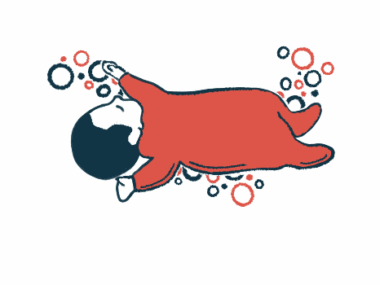Epidiolex now approved in Canada to treat seizures in Dravet
Add-on CBD therapy available for patients ages 2 and older
Written by |

Health Canada has approved Epidiolex (cannabidiol) as an add-on treatment for seizures in adults and children, ages 2 and older, with Dravet syndrome, expanding the list of countries where the medicine is available for this form of epilepsy.
The oral solution developed by GW Pharmaceuticals, now Jazz Pharmaceuticals, also received Health Canada’s approval for use in Lennox-Gastaut syndrome (LGS) and tuberous sclerosis complex (TSC), two other forms of epilepsy that cause multiple seizure types.
“The approval of Epidiolex is an important development for individuals living with specific rare epilepsies, their families, and clinicians across Canada,” Paul Petrelli, general manager of Jazz Canada, said in a press release.
With the approval in hand, the company will now work with relevant stakeholders in Canada and take steps to make sure that patients who qualify will get reimbursed when they buy Epidiolex.
“This approval encourages hope and optimism for this community. The priority now becomes ensuring those living with these conditions have equitable and timely access to promising treatment options,” said Laura Dickson, president of the Canadian Epilepsy Alliance, a Canada-wide network of grassroots organizations supporting patients and their families.
Therapy targets several hard-to-treat forms of epilepsy
Dravet syndrome begins to manifest as treatment-resistant seizures, usually starting in the first year of life. It then goes on to cause other symptoms, such as behavioral challenges, developmental delays, and features of autism spectrum disorder.
Like Dravet syndrome, LGS and TSC also cause recurring seizures.
“Living with LGS, Dravet syndrome or TSC is very difficult,” Dickson said.
“It means enduring recurring seizures every day. This presents a challenging and isolating experience for individuals living with these conditions to experience and places a great deal of stress on caregivers who witness the seizures,” she said.
Linda Huh, MD, a pediatric neurologist at British Columbia Children’s Hospital, in Vancouver, Canada, noted that these conditions are “extremely difficult to treat.”
“[As] rare and severe forms of childhood-onset epilepsies, LGS, Dravet syndrome and TSC have limited approved therapies and are often treatment-resistant,” Huh said.
Epidiolex is a highly purified plant-derived cannabidiol, or CBD, that has been approved in the U.S. for individuals, ages 1 and older, with Dravet syndrome, LGS, or TBC. In Europe, where it is branded as Epidyolex, it can be used as an add-on to clobazam — an anticonvulsant sold as Onfi, among others — in patients 2 and older.
The therapy also is available for certain populations in other countries, including Australia, Israel, New Zealand, and Switzerland, as well as in the U.K.
Epidiolex reduced seizure frequency by about half in clinical trials
The therapy’s approval in Canada was based on the results of five Phase 3 clinical trials that involved more than 900 people with Dravet syndrome, LGS, or TSC. The results showed that Epidiolex lowered the number of seizures when added to other anticonvulsants.
“This decision affirms the potential of cannabinoid-based medicines for those living with epilepsy. It also reaffirms Jazz’s commitment to bringing forward new therapeutic options for Canadians living with rare and debilitating neurological conditions,” Petrelli said.
The Health Canada approval of Epidiolex is significant news for a patient population with a critical unmet need.
In a Phase 3 study called GWPCARE1 (NCT02091375), the effectiveness of Epidiolex, compared with a placebo, was assessed in 120 children and adolescents with Dravet syndrome. Given at a dose of 20 mg/kg body weight per day for 3.5 months, Epidiolex lowered by half the average number of monthly convulsive seizures, compared with the number before treatment.
In addition, 5% of those receiving Epidiolex were seizure-free for the duration of the study.
Using the Clinical Global Impression of Change scale, which reflects beliefs about the efficacy of treatment, caregivers noted improvements in 62% of patients treated with Epidiolex versus 34% of those on a placebo.
Another Phase 3 study, GWPCARE2 (NCT02224703), compared two doses of Epidiolex versus a placebo in 199 children and adolescents with Dravet syndrome.
One group received 20 mg/kg per day, while a second group received 10 mg/kg per day. The higher dose group experienced a mean seizure reduction of about 46%, while the lower dose group averaged 49%. Those receiving a placebo saw a 27% reduction in seizures, on average.
“The Health Canada approval of Epidiolex is significant news for a patient population with a critical unmet need, providing us with a robustly studied treatment option,” Huh said.







